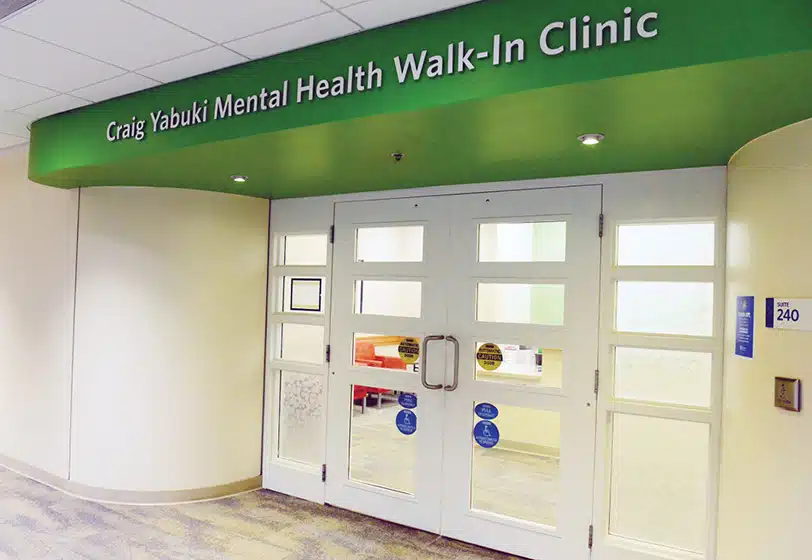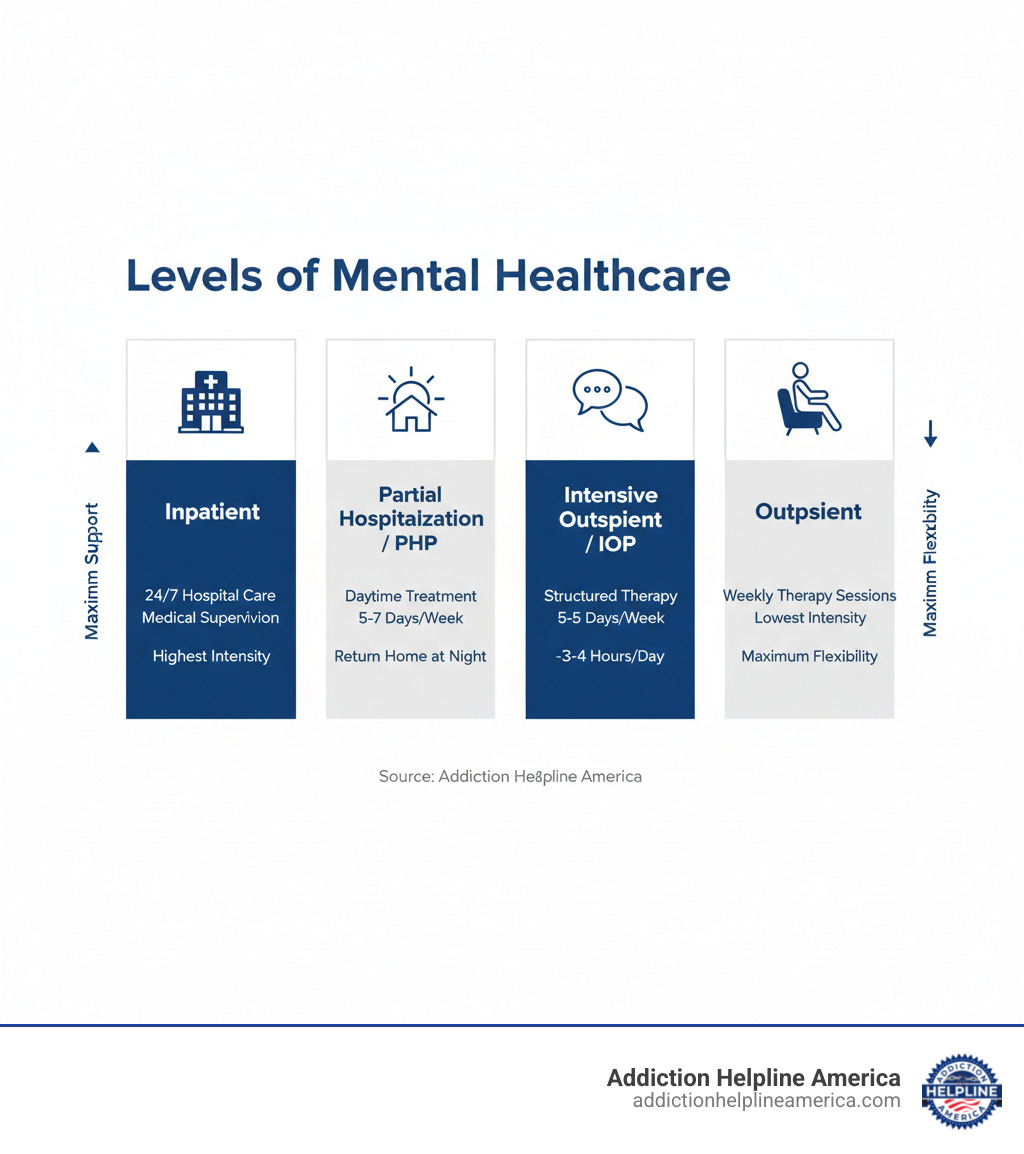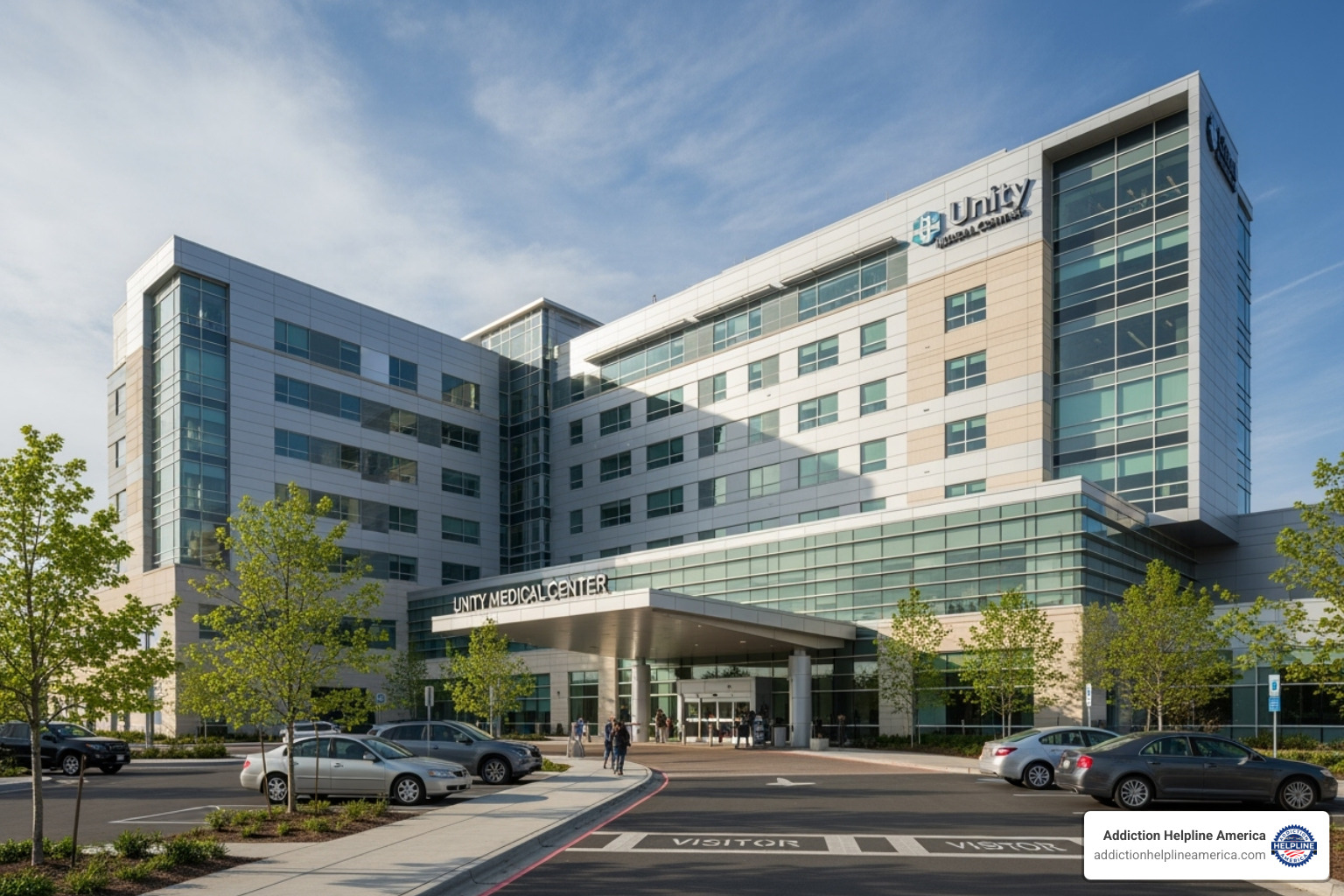
Why Finding the Right Mental Health Support Matters
When you’re searching for a mental hospital near by me, you’re likely facing a critical moment. This guide will help you steer your options.
Quick Guide to Finding Mental Health Care:
- Emergency situations: Go to your nearest Emergency Department or call 911. You can also call/text the 988 Suicide and Crisis Lifeline for immediate support.
- Crisis stabilization: County hospitals offer 24/7 psychiatric emergency services for short-term care.
- Inpatient treatment: Private psychiatric hospitals provide intensive care with overnight stays and structured therapy.
- Outpatient options: Includes Partial Hospitalization (PHP), Intensive Outpatient (IOP), and regular therapy for ongoing support.
- Specialized care: Facilities exist for adolescents, seniors, and dual diagnosis (mental health + addiction).
The mental health system is complex, with public county hospitals, private centers, and state facilities serving different needs. Some handle emergencies and involuntary commitments, while others focus on voluntary patients. What matters most is matching the level of care to the specific situation. A crisis requires immediate intervention, while ongoing illness may need inpatient treatment. Outpatient programs are often ideal for recovery and relapse prevention.
This guide explains the types of facilities, what inpatient, PHP, and IOP mean, and how to find licensed, accredited care in your area.
At Addiction Helpline America, we connect individuals and families to appropriate mental health and addiction treatment facilities nationwide. Our team understands that seeking help is the most important step toward recovery, and we can help you steer the process of finding a mental hospital near by me that meets your needs.
Similar topics to mental hospital near by me:
Understanding the Landscape of Mental Health Treatment
When searching for a mental hospital near by me, you’re entering a complex system. This section breaks down the different facility types, from public crisis centers to private hospitals, to help you make an informed decision.
Public vs. Private Facilities
Understanding the difference between public and private facilities is key.
Public mental health resources are government-funded and serve a critical community need. They focus on crisis intervention, emergency care, and treatment for those without private insurance. They often handle involuntary holds and long-term care for severe mental illness. Examples include county hospitals that provide 24/7 crisis stabilization.
Private behavioral health facilities are privately owned and offer a broader range of voluntary programs. They may serve specific age groups with specialized programs for conditions like depression, anxiety, and chemical dependency. The admission process is often more streamlined for voluntary patients, and they operate on patient fees and private insurance.
Knowing these differences helps you decide where to turn. A county hospital may be the first step in a crisis without insurance, while a private facility might offer more options for specialized treatment with insurance. For more information, you can learn more here.
The Role of Health Departments and Oversight
To ensure a facility is safe and legitimate, state and local health departments play a crucial role. These agencies license and oversee mental health services, setting standards for care quality, safety, and ethical treatment. For example, California’s Department of State Hospitals (DSH) and Department of Health Care Services (DHCS) manage state hospitals and maintain lists of licensed facilities. This oversight ensures accountability and quality. When evaluating facilities, always ask about their licensing and accreditation. You can find licensed facilities and support through verified directories.
A Note on Historical Injustices
It’s important to acknowledge that the history of institutional mental health care includes serious wrongs, such as the forced sterilization of individuals in California state institutions through 1979. In response, the state created a compensation program for survivors. Initiatives like the California Memorial Project also work to honor those who lived and died in these institutions.
Understanding this history highlights the importance of patient rights, ethical oversight, and humane treatment today. The system has evolved with stronger protections, but we must remain vigilant. Today’s facilities operate under strict ethical guidelines to prevent past abuses. If you are a survivor seeking help, you can learn more about support for survivors and available resources.
Finding a Mental Hospital Near By Me: A Review of Facility Types
When searching for a mental hospital near by me, understanding the different facility types is crucial. Some offer a full range of programs, while others focus on emergency care or long-term treatment. This review covers the main types to help you find the right fit.
Comprehensive Private Hospitals (All Ages)
Private psychiatric hospitals often provide a comprehensive range of services for adolescents, adults, and seniors. These facilities, such as Fremont Psychiatric Hospital or Sierra Vista Hospital, offer multiple levels of care, including inpatient treatment, Partial Hospitalization Programs (PHP), and Intensive Outpatient Programs (IOP). This flexibility allows patients to move between care levels as they progress. Many also provide specialized chemical dependency treatment, recognizing the link between mental health and substance use. Care is delivered by multidisciplinary teams of psychiatrists, therapists, and nurses using evidence-based therapies like CBT and DBT. For more information on what inpatient care involves, you can explore our guide on Inpatient Facility for Mental Health.
County-Level and Emergency Services
In a mental health crisis, county-supported services are often the fastest route to help. These facilities specialize in 24/7 crisis intervention and rapid stabilization. Examples include county Psychiatric Emergency Services and Youth Stabilization Units, which provide immediate assessment, medication support, and therapy. Montage Health’s Crisis Stabilization Unit (CSU) is another example where you can walk in anytime for immediate help. These services are not for long-term treatment; their goal is to stabilize you during a crisis and connect you with ongoing care. They are a critical entry point, especially for those on involuntary psychiatric holds. To find local emergency mental health services in your area, visit our crisis support page.
Specialized and Long-Term Care Facilities
Some facilities serve specific populations with complex needs requiring long-term care, often in secure settings. These are typically state-run hospitals, like those managed by California’s Department of State Hospitals (DSH). These hospitals treat individuals under legal mandates, such as those found incompetent to stand trial, under conservatorship, or transferred from the criminal justice system. They do not accept voluntary admissions. Patients are admitted through court orders. Treatment is highly structured and secure, with specialized programs for conditions like severe psychosis, co-occurring substance use, and forensic issues. The goal is to help patients manage symptoms and develop coping skills. For information about long-term care, our guide on Long Term Behavioral Health Facilities provides more details.
Key Levels of Care and Specialized Programs
Understanding the terminology is crucial when exploring options for a mental hospital near by me. This section breaks down the different treatment intensities and specialized programs available.
Comparing Levels of Care: Inpatient, PHP, IOP, and Outpatient
Mental health treatment is offered at several levels of intensity, allowing you to step down to less intensive care as you recover.
- Inpatient (residential) care is the highest level, providing 24/7 medical supervision and structured therapy in a facility. It’s ideal for acute crises or when someone is a danger to themselves or others.
- Partial Hospitalization Programs (PHP) offer intensive, daily treatment (typically 5-7 days a week for several hours) while you live at home. It’s a good step-down from inpatient care.
- Intensive Outpatient Programs (IOP) provide structured therapy 3-5 days a week for a few hours, allowing you to maintain work or school. It’s great for managing chronic conditions and preventing relapse.
- Traditional outpatient care is the least intensive, involving weekly therapy sessions for ongoing support and medication management.
| Feature | Inpatient (Residential) | Partial Hospitalization Program (PHP) | Intensive Outpatient Program (IOP) | Outpatient (Traditional) |
|---|---|---|---|---|
| Living Arrangement | 24/7 stay at the facility | Live at home, attend during the day | Live at home, attend for several hours | Live at home, attend scheduled appointments |
| Time Commitment | 24 hours a day, 7 days a week | 5-7 days a week, typically 4-6 hours per day | 3-5 days a week, typically 3-4 hours per day | 1-3 sessions per week, typically 1 hour each |
| Intensity | Highest: Medical supervision, crisis stabilization | High: Structured, comprehensive therapy | Moderate: Group and individual therapy | Lowest: Individual/group therapy, medication management |
| Ideal Candidate | Acute crisis, danger to self/others, severe symptoms | Transition from inpatient, needs daily support | Stable but needs structured support, relapse prevention | Stable, mild-moderate symptoms, ongoing support |
Many facilities offer multiple levels, allowing for a smooth transition as your needs change.
Innovative Support Programs
Beyond clinical care, many facilities offer programs that emphasize peer and family support. Spaces like “The Living Room” at Ellis Hospital allow adults to connect with peers, while “The Family Room” offers a supportive environment for adolescents. Other programs incorporate peer specialists and a family-centered approach, recognizing that a strong support network is vital for long-term recovery. These programs build community and create sustainable support systems.
Addiction and Dual Diagnosis Treatment
Mental health and substance use disorders often occur together, a condition known as dual diagnosis or co-occurring disorders. Treating only one condition is rarely effective. An integrated approach that addresses both simultaneously is essential for lasting recovery. Many facilities, like Sierra Vista Hospital and Fremont Psychiatric Hospital, offer specialized chemical dependency programs, including detox and IOPs.
At Addiction Helpline America, we specialize in connecting people to facilities that provide comprehensive, integrated dual diagnosis treatment. Addressing the whole picture is key to recovery. You can learn more about dual diagnosis treatment and how it can make a difference.
Frequently Asked Questions about Mental Hospitals
When searching for a mental hospital near by me, it’s natural to have questions. Here are straightforward answers to common concerns.
What should I do in a mental health emergency?
If you or someone else is in crisis, immediate action can save a life.
- Call 911 if the situation is life-threatening or there is an immediate danger.
- Go to the nearest Emergency Department. Hospitals have trained crisis teams available 24/7 for mental health assessments and safety planning.
- Contact a Crisis Stabilization Unit (CSU) if available in your community. These units offer rapid psychiatric assessment and short-term care to help stabilize a crisis, often without a full hospital admission.
- Call or text the 988 Suicide and Crisis Lifeline. This free, confidential, 24/7 service connects you with trained crisis counselors who provide immediate support and can help you find local resources. You can also visit 988lifeline.org.
Reaching out for help is a courageous first step toward safety.
What is the difference between a public and a private psychiatric hospital?
The main differences are funding, patient population, and admission process.
- Public hospitals are government-funded. They often care for individuals with severe, chronic mental illnesses, the uninsured, and those under involuntary commitment. Admissions are often prioritized for emergencies or legal mandates.
- Private hospitals operate on patient fees and private insurance. They typically treat a broader range of conditions and focus on voluntary admissions, often with a more streamlined process and personalized treatment plans.
Neither is inherently “better”; the right choice depends on your situation, insurance, and care needs.
How do I find a mental hospital near by me?
Finding the right mental hospital near by me can be manageable with these resources:
- Your primary care doctor can provide referrals to local specialists and facilities that fit your needs and insurance.
- Your insurance provider can give you a list of in-network hospitals and treatment centers, which can save you significant out-of-pocket costs.
- Addiction Helpline America’s treatment locator offers personalized, free, and confidential guidance. Our specialists can help you steer your options and connect you with a facility from our vast network that matches your needs and insurance. Search for facilities through Addiction Helpline America.
Before choosing a facility, call ahead to confirm their services, availability, admission criteria, and insurance acceptance.
Conclusion
Searching for a mental hospital near by me is a courageous and hopeful step toward healing. This guide has helped you steer the landscape of mental health treatment, from understanding the differences between inpatient, PHP, and IOP care to distinguishing between public and private facilities.
The right level of care depends on your specific situation. A crisis may require an Emergency Department, while recovery might involve stepping down from inpatient to an outpatient program. We’ve also highlighted the importance of integrated treatment for co-occurring disorders, where mental health and addiction are addressed together. You can learn more via our dual diagnosis treatment resources.
Finding the right fit involves considering the facility’s location, specialization, and admission process. What matters most is that the program matches your needs and provides evidence-based care in a supportive environment.
At Addiction Helpline America, we understand this journey. We offer free, confidential guidance to help you find a personalized treatment program from our vast network of facilities. We can answer your questions and connect you with the right facility for your unique situation.
You don’t have to do this alone. Help is available now. Take the next step toward recovery. Get professional help to find the right facility for you.
Our helpline is 100%
free & confidential
If you or someone you care about is struggling with drug or alcohol addiction, we can help you explore your recovery options. Don’t face this challenge alone—seek support from us.
Programs
Resources
Will my insurance
cover addiction
treatment?
We're ready to help
Find the best
drug or alcohol treatment
center
Are you or a loved one struggling with addiction? Call today to speak to a treatment expert.
















